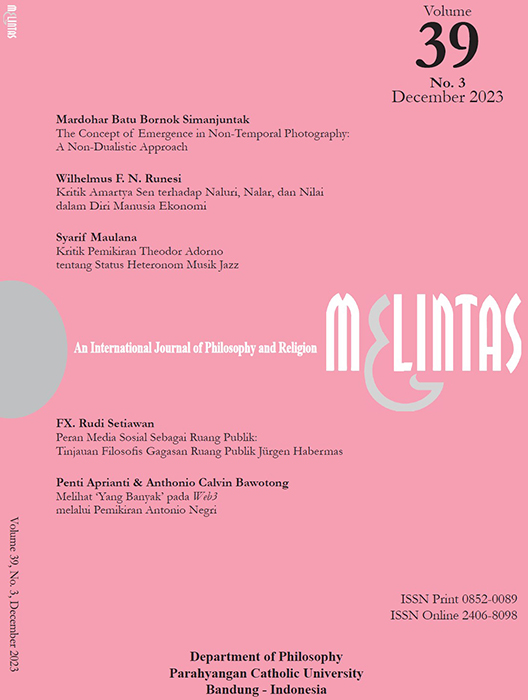Kritik Pemikiran Theodor Adorno tentang Status Heteronom Musik Jazz
DOI:
https://doi.org/10.26593/mel.v39i3.7825Keywords:
jazz, musical autonomy, twelve-tone technique, musical heteronomyAbstract
Theodor W. Adorno, a prominent thinker in the Frankfurt School, articulated his views on jazz music. He considered jazz music to be ‘functional’ music (Gebrauchsmusik) serving the bourgeois class in the post-war period. Furthermore, Adorno observed that the spontaneity in jazz music was a myth as it originated from the 32-bar song patterns akin to Broadway tunes. Through improvisation, jazz music created an illusion of uniqueness in its ‘products’ by emphasizing a distinctive style of performance. However, Adorno argued that improvisation, inadvertently, was constructed within similar constraints across various musical compositions. Additionally, in another accusation, Adorno regarded blue notes in jazz music performance as an error that one attempts to correct within their own auditory perception. Conversely, Adorno extolled music containing Arnold Schoenberg’s twelve-tone technique as autonomous art capable of social critique through internal logic within the music itself. This article seeks to pinpoint Adorno’s fallacies in his critique of jazz music, based on his failure to formulate the ontological aspects of jazz music which rigidly adhere to canonical forms, his inability to situate the potential of jazz music within autonomous art, and the distortions stemming from stereotypes about jazz music prevalent in his time.
Downloads
Published
Issue
Section
License
Copyright (c) 2024 Syarif Maulana

This work is licensed under a Creative Commons Attribution-NonCommercial 4.0 International License.
MELINTAS applies the Creative Commons Attribution (CC BY NC) license to articles and other works we publish. If you submit your paper for publication by MELINTAS, you agree to have the CC BY NC license applied to your work.


